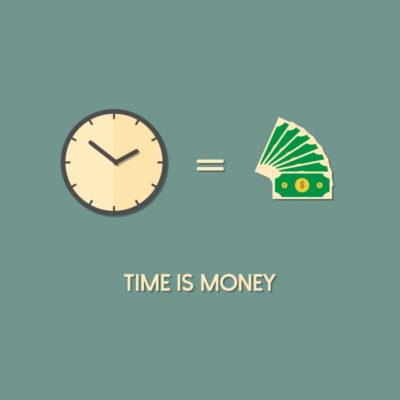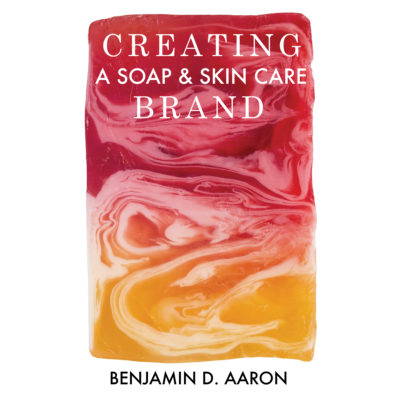You are busy. Really, really busy. Not only are you a bustling entrepreneur (or maybe soon-to-be-one), making product hand-over-fist and selling it to as many people as you can, you’ve got all those other things to do…ya know, like taking care of your family, paying your bills, planning vacations, hopefully going on vacations, doing the dishes, mowing the grass, painting the trim, dusting the lampshades, going to the gym, etc…
All of this requires TIME.
Your time is your most valuable resource. I know, you’ve heard that before. But please delve into this cliche on a deeper level.
If you aim to start, launch and grow a soap and skin care business, you must develop a means to an end. The question you should keep asking yourself is, “Why am I doing this?”
Sure, you are doing it because it is fun. You are doing it to provide great products to your community (local to nation, world). I know that.
But, you are also doing this for you and/or your family.
Ultimately, running a business–though painstaking and time-consuming–is a means to more freedom. This is what your penultimate goal should be. To have the liberty and freedom to do what you want (eventually), when you want it, is your greatest goal.
The preface to freedom is leverage. You must learn to leverage your time so that it benefits you and the greater good. In terms of work productivity, leverage is, in essence, the difference between the base cost for your hour and the amount of money you get from it. One good way to evaluate your time-leverage is measuring and monitoring this differential, hour by hour, for a week.
Now, let’s set up your base earning target. Wait, what is that?…
Since you are your own boss, you write your own paycheck and you decide how much that paycheck is going to be. But, for most soap and skin care startups, this is usually whatever is left in the bank after all the other expenses are accounted for! And usually for startups, this number just ain’t that much.
This is a huge mistake for two reasons: Number one: It indicates zero planning. Number two: It means you pay yourself last, which, to my knowledge, is still the single biggest reason entrepreneurs end up broke.
Let’s not do that. Let’s plan instead!
You’ve got to decide how much money you’re going to take out of your business in one calendar year in salary, perks, contributions to retirement plans and so on. What is that number?
If this scares you, fear not. It is simply part of the process of becoming an entrepreneur. Most of us work our entire life under someone else…they tell us what we get paid and when we get paid. Doing this ourselves for the first time can feel a bit daunting, but you do have to start with a number.
I can tell you this: most people I work with or talk to casually cannot tell me their number. They’ve never even considered it.
To which I often respond, “Why are you doing this again?”
If you don’t have a base income target, then you cannot calculate what your time must be worth, which means you cannot make good decisions about the investment of your time, which means you’re not exercising any real control over your business or life at all! You are a wandering generality. Is that what you want to do — just wander around and settle for whatever you get?
For the sake of our conversation, get a number — your base earnings target for the next full calendar year. You can change it later if you need, but just come up with a full year’s salary.
Divide it by the number of work hours, which is 1,760 (220 working days per year times eight hours per day = 1,760). Yes, I know that start-up entrepreneurs work more than this, but this is simply a baseline to get you started.
Then, I recommend multiplying this number by 3 to allow for what I call “entrepreneurial hours” (research and development time, reading business books, consulting with a coach, brand development, etc. Basically all of the “non-tangible” aspects of running a business as opposed to just making product). Now you have what your time is supposed to be worth per hour.
Let’s say your goal is to earn $24,000 for upcoming calendar year. You first divide this by 1,760.
24,000 / 1,760 = 13.64
We then take this number and multiply it by 3:
13.64 x 3 = 40.92, or $41 per hour.
So now you know how much your time is really worth. In this example, this start-up soap and skin care owner is worth $41 per hour.
Now he/she must start doing all the things required of them to earn $41 for each hour he/she puts in. This is a lot easier said than done.
A lot of your decision making gets easy with this number staring you in the face. It’s hard to con yourself with this number confronting you. In fact, I suggest having it stare you in the face a lot until you internalize it. Write your number “$____ per Hour” on a bunch of colorful 4 x 6-inch cards in bold letters and stick these cards up in places where you work and will see them often.You are worth that much per hour. This number, per hour, is your ticket to leveraging your time in accordance with your larger life goals.


Generally speaking, with this number confronting you, two business life changes probably come to mind immediately:
First, you realize you’ve got to surround yourself with people who understand and respect the value of your time and behave accordingly. Whether it is just your spouse, your kids, neighbors and friends, they must start to see you as a person who earns a significant amount of money based on the actions you take from hour to hour. This isn’t easy, and they’ll forget often because familiarity breeds contempt. Periodically, you’ll have to reorient them. You also must get people who don’t respect the value of your time out of your business life. If you let people who don’t understand and respect the value of your time hang around, you won’t even have a fighting chance.
Second, you have to eliminate the needless, fruitless activities of your day and get to work on earning money through the fruits of your company.
Your time is everything. We all have the same amount of “time,” but we don’t use it in the same way. I try not to focus too much on time and rather focus on energy.
Do I have time to drop everything I’m doing and go to a party? Yes, I do have the time.
But, I don’t wish to expel my energy on that activity when I could instead be investing my energy into my business.
Do you see the difference? It’s same-same, really, but this concept really helps me stay focused on my larger tasks.
- So, the first question to ask yourself is, what is your upcoming year’s salary going to be?
- Next, do the equation to find the real value of your working hour.
- Next, perform all the tasks required of a person who wishes to earn your hourly wage.
- Next, cut out all the crap and focus your energy into each activity.
- Next, train everyone around you to see you as a person earning your expected hourly wage.
This is a practice in mental fortitude and objective thought, not to mention a real-life look at the true potential of your soap and skin care business.
~ Benjamin






Very useful information! Could you address how these calculations should be adjusted if you work another job in addition to your soapmaking business?
I would simply take the actual time you spend on your soap and skin care business and use that number instead of the 40 in the equation.